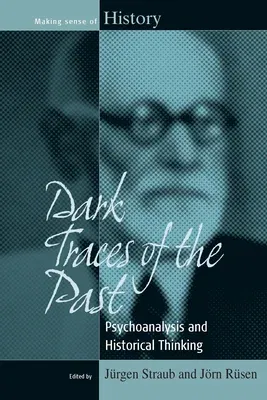Dark Traces of the Past: Psychoanalysis and Historical ThinkingHardcover, 1 December 2011

Qty
1
Turbo
Ships in 2 - 3 days
In Stock
Free Delivery
Cash on Delivery
15 Days
Free Returns
Secure Checkout

Part of Series
Making Sense of History
Part of Series
Making Sense of History, 14
Print Length
232 pages
Language
English
Publisher
Berghahn Books
Date Published
1 Dec 2011
ISBN-10
1845457536
ISBN-13
9781845457532
Description
Product Details
Book Format:
Hardcover
Country of Origin:
US
Date Published:
1 December 2011
Dimensions:
22.91 x
15.19 x
1.42 cm
Genre:
Historical
ISBN-10:
1845457536
ISBN-13:
9781845457532
Language:
English
Location:
New York, NY
Pages:
232
Publisher:
Weight:
485.34 gm